Lab Members
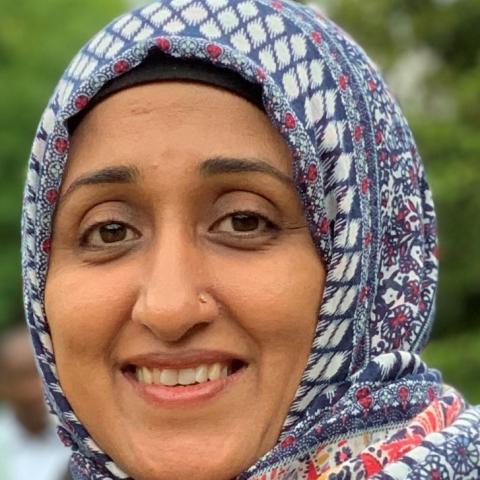
Rehana Z. Hussain M.Sc.
Ms. Hussain is the Clinical Research and Laboratory manager for all of Dr. Stuve’s research endeavors. She is originally from Pakistan, and got her Master’s degree in Microbiology from the University of Karachi. Ms. Hussain started working at UT Southwestern in 1998 in the Department of Internal Medicine in Rheumatology in the laboratory of Dr. Peter Lipsky, before transferring to Neurology in 1999. There, she joined Dr. Stuve’s laboratory since 2005. Her work assignments are very broad, and include molecular biology, cellular biology, and experiments with the experimental autoimmune encephalomyelitis (EAE) animal model of multiple sclerosis (MS). Ms. Hussain is also in charge of all administrative task of the laboratory. Finally, she is the study coordinator/manager for a number of investigator-initiated and collaborative clinical trials.
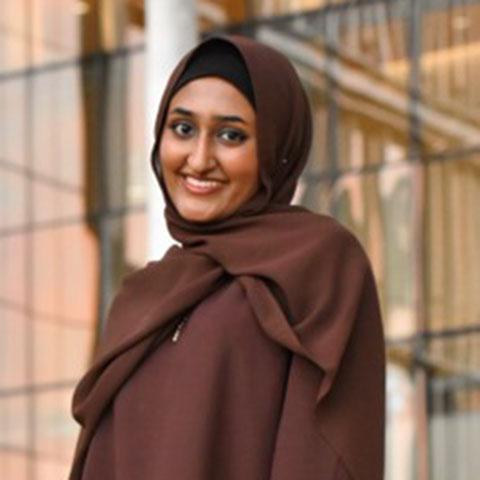
Mariam Madinawala, B.Sc.
Ms. Madinawala was born and raised in Dallas, TX and received her Bachelor of Science degree majoring in Biology from the University of Texas at Arlington– Class of 2022. While studying, Ms. Madinawala served as a volunteer coordinator for a pre-health organization.
Currently, Ms. Madinawala is working as a Research assistant in Dr. Stuve's laboratory focusing on disease characterization related to Multiple Sclerosis. Specifically, she has been involved in data acquisition and analyses on a neuroimaging research project funded by the National Multiple Sclerosis Society (NMSS), and of several investigator-initiated phase 4 clinical trials. Prior to this, she conducted research work in Dr. Tsai's laboratory at UT Southwestern focusing on rescuing autistic-like phenotypes in mutant mouse lines. In addition to her professional pursuits, Ms. Madinawala is passionately engaged as a volunteer in organizations committed to offering aid and support to underprivileged communities.
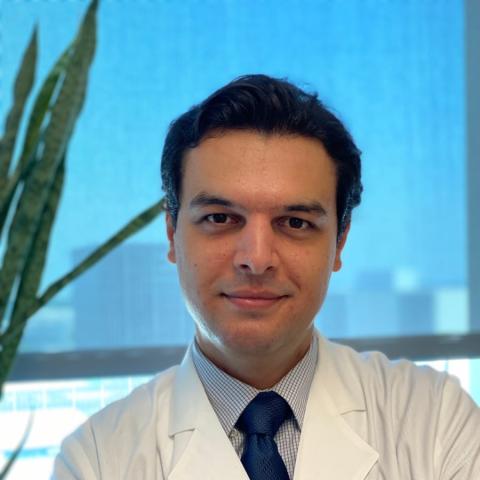
Navid Manouchehri Ardestani, M.D.
Dr. Manouchehri Ardestani is currently a resident on the R25-funded research track in the Department of Neurology at UT Southwestern. Dr. Manouchehri Ardestani earned his M.D. degree from Isfahan University of Medical Sciences in 2016. He joined the Stuve laboratory as a post-doctoral research fellow in 2018. Dr. Manouchehri Ardestani has two major research interests. First, he aims to conceptualize rational management approaches for persons with multiple sclerosis (MS) and related disorders. Second, Dr. Manouchehri Ardestani is exploring pathogenic pathways of progressive forms of MS in preclinical models of MS.
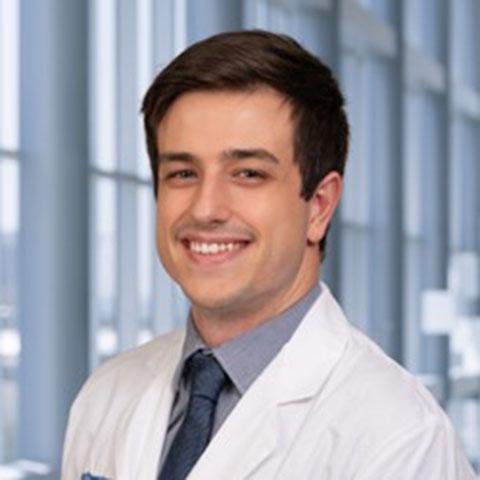
Nil Saez Calveras, M.D.
Dr. Saez Calveras was born and raised in Spain and received his medical degree from the University of Barcelona. During his medical training, Dr. Saez Calveras also worked as a research intern at the Massachusetts General Institute for Neurodegenerative Disease in Boston under the mentorship of Dr. Teresa Gomez-Isla. There, he focused is research efforts on validating new Tau PET radiotracers for Alzheimer's disease and Chronic Traumatic Encephalopathy. Following his research internship, Dr. Saez Calveras moved to Dallas to start his residency as an R25-funded research track resident in the Department of Neurology at the University of Texas Southwestern Medical Center. Currently, Dr. Saez Calveras is working in the Marc Diamond laboratory and collaborating with the Stuve laboratory on gaining a better understanding of the role of myeloid cells in neurodegenerative diseases in order to develop therapeutic approaches.
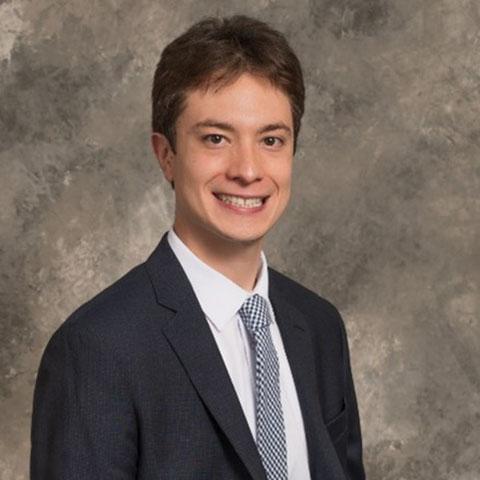
Marco A. Tapia-Maltos, M.D., Ph.D.
Dr. Tapia-Maltos graduated in 2022 from the M.D./Ph.D. program of the Medical School of the Universidad Nacional Autonoma de Mexico (UNAM) in Mexico City. He worked under the mentorship of Dr. Jose Carlos Crispin and Dr. Florencia Rosetti at the Rheumatology Department of the Instituto Nacional de Ciencias Medicas y Nutricion Salvador Zubiran during his Ph.D. and for an additional year as a postdoctoral researcher. Dr. Tapia-Maltos currently is a Neurology resident on the R25-funded research track at UT Southwestern and has joined Dr. Stuve’s laboratory. He is interested in mechanisms of immune tolerance and how it is breached in autoimmune diseases. Particularly, he is interested in factors governing regulatory T cell differentiation and function, how mucosal immunity in the intestine can influence these processes, and how does this relate to the pathophysiology of systemic autoimmune diseases, especially multiple sclerosis.
UT Southwestern Collaborators
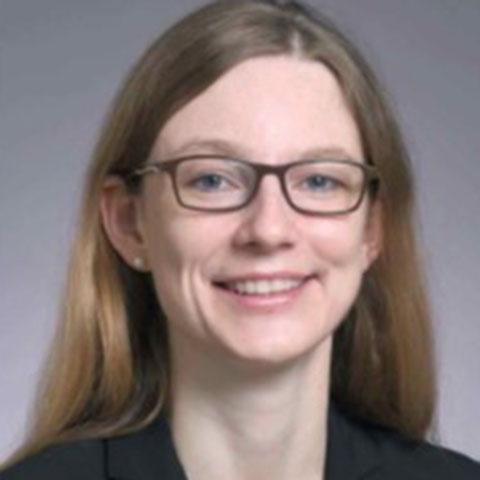
Barbara Elena Stopschinski, M.D.
Dr. Stopschinski is originally from Essen, Germany. She received her medical degree at the Ruhr University of Bochum and completed four years of residency training in neurology at the University of Aachen. During this time, Dr. Stopschinski developed a deep interest in basic and translational research on neurodegenerative conditions. To pursue her research interests, she joined the Marc Diamond laboratory at UT Southwestern Medical Center (UTSW) as a postdoctoral fellow. Her postdoctoral work focused on the role of Heparan Sulfate Proteoglycans (HSPGs) as receptors for cellular tau uptake in Alzheimer’s Disease and other tauopathies. Dr. Stopschinski subsequently joined the neurology residency program at UTSW. She recently joined the faculty at UTSW as a behavioral fellow and physician-scientist. Dr. Stopschinski is a translational neuroscientist, and her laboratory focuses on cellular tau uptake and the role of neuroinflammation in tauopathies.
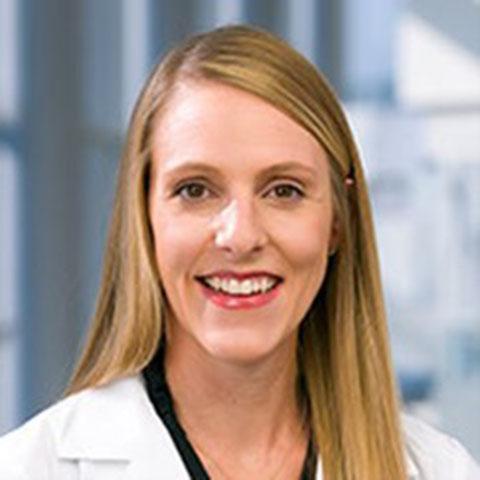
Lauren Tardo, M.D.
Dr. Tardo is an Assistant Professor in the Department of Neurology at UT Southwestern Medical Center. She specializes in multiple sclerosis (MS), myelin oligodendrocyte glycoprotein (MOG) antibody disease, and other rare neuroimmunological disorders. Dr. Tardo earned her medical degree at the University of Mississippi. She completed a residency in neurology and gained advanced training through fellowship in multiple sclerosis and neuroimmunology at UT Southwestern. An investigator for numerous clinical trials, Dr. Tardo’s research interests include clinical treatment trials and access to care for all MS patient populations. She is also interested in understanding disease heterogeneity in MS.
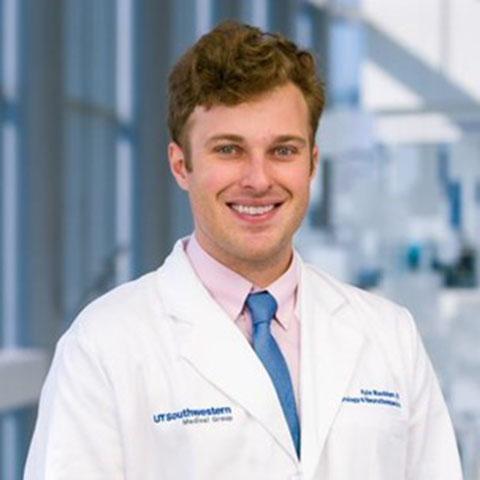
Kyle Blackburn, M.D.
Dr. Blackburn is an Assistant Professor in the Department of Neurology. He specializes in antibody-mediated neurological disorders, including neuromyelitis optica, myelin oligodendrocyte glycoprotein (MOG) antibody disease, autoimmune encephalitis, and paraneoplastic disorders. Dr. Blackburn works to advance new therapies for antibody-mediated disorders, and coordinated one of the first clinical trials for autoimmune encephalitis. His other research interests include investigating the long-term outcomes of autoimmune neurological disorders and leveraging biomarkers to guide treatment.

Laurent Calvier, Ph.D.
As a Master student and later as a Ph.D. student in the INSERM institute in Nancy (France), Dr. Calvier conducted research with Dr. Natalia López-Andrés and Dr. Patrick Rossignol on biomarker roles in vascular remodeling during hypertension. For his postdoctoral training, he first worked with Dr. Georg Hansmann at Hannover Medical School (MHH, Germany. For his second postdoc, Dr. Calvier joined Dr. Michael Brown and Dr. Joseph Goldstein at UT Southwestern. With his mentor Dr. Joachim Herz, he has investigated endothelial breakdown and leukocyte extravasation during chronic inflammatory diseases such as atherosclerosis and multiple sclerosis.
As a junior investigator, Dr. Calvier has been studying inflammatory diseases such as Alzheimer’s disease or arthritis, from a different perspective: The vascular dysfunction. Specifically, he and Dr. Herz have identified a circulating protein (Reelin) that regulates the endothelial function and infiltration of leukocytes. This mechanism may be central in the pathogenesis of many chronic inflammatory diseases.

Marc Diamond, M.D.
Dr. Diamond is the Director of the Center for Alzheimer's and Neurodegenerative Diseases at the Peter O'Donnell Jr. Brain Institute at the University of Texas Southwestern Medical Center. He is also a Professor in the Departments of Neurology and Neurosciences.
Dr. Diamond has made original discoveries linking common disorders such as Alzheimer’s disease to rare infectious prion disorders. This has transformed the scientific community’s understanding of why neurogenerative diseases progress, and how different diseases arise. His lab has discovered that abnormal assemblies of the tau protein move between cells and serve as templates for their own replication. Dr. Diamond’s ideas have formed the basis of new therapeutic approaches for Alzheimer’s and related disorders. He holds multiple patents and is the inventor of a monoclonal antibody that is currently in clinical trials. Recently, Dr. Diamond’s work has also focused on the role of inflammation in the pathogenesis of neurodegenerative disorders.
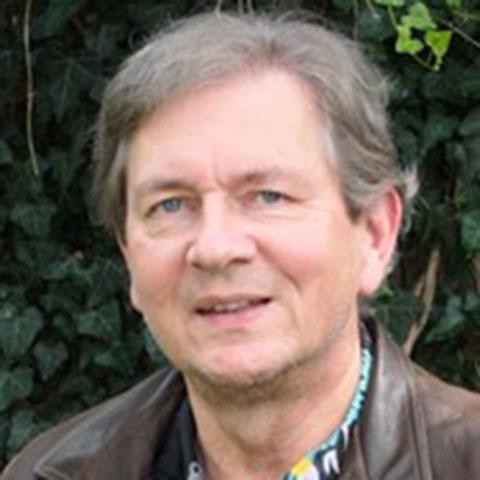
Joachim Herz, M.D.
Dr. Herz graduated from Medical School at the University of Heidelberg, Germany, in 1983. He continued training as a resident in surgery in Germany and England until he joined the European Molecular Biology Laboratory in 1985. There, he received training in Molecular Biology and conducted research work that included the identification and cloning of a novel member of the LDL receptor gene family, the LDL receptor-related protein (LRP). In 1989, Dr. Herz joined the Department of Molecular Genetics where in 1998 he attained his current position of Professor. He is the holder of the Thomas O. Hicks Family Distinguished Chair in Alzheimer’s Disease Research and the Presbyterian Village North Foundation Distinguished Chair in Alzheimer's Disease Therapeutic Research.
Dr. Herz’s current research focuses on the molecular mechanisms by which the members of the LDL receptor gene family function as signaling and endocytic receptors in the brain and in the vascular wall. Recent work from his laboratory have revealed therapeutically amenable mechanisms that can be exploited for the development of novel treatment approaches for Multiple Sclerosis and the prevention of late-onset Alzheimer's Disease.
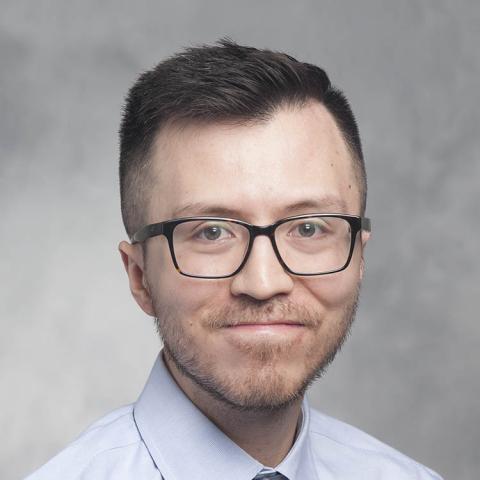
Victor Salinas, M.D., Ph.D.
Dr. Salinas was born in Ambato, Ecuador and grew up in Toronto, Canada. He received his Bachelor's degree from Harvard University, completing his undergraduate thesis in the lab of Arlene Sharpe investigating the role of costimulation on T cell differentiation. Dr. Salinas subsequently enrolled in the M.D./Ph.D. program at the UT Southwestern, where his graduate research in the laboratory of Dr. Rama Ranganathan focused on revealing and understanding the pattern of amino acid interactions underlying protein function using high-throughput mutagenesis. During his residency in Neurology at UT Southwestern, he joined Dr. Stuve’s laboratory and characterized myeloid cells subsets originating from the bone marrow in a model of CNS autoimmunity.
Dr. Salinas recently joined the Department of Neurology as a faculty member, and as a staff neurologist at the VA North Texas Healthcare System. In addition, he established his own research laboratory. His current research interests meld cellular immunology, synthetic biology, and -omics approaches to further dissect the pathogenic role of myeloid cells in multiple sclerosis (MS) and related disorders.

Peter Sguigna, M.D.
Dr. Sguigna’s laboratory focuses on advanced diagnostic imaging of neuro-ophthalmological disorders, as well as unraveling the neuro-retinal circuitry in neuroimmunological diseases. Dr. Sguigna actively works on better ways to distinguish these disorders using non-invasive technology. He uses specialized testing to gain insight into some of the most disabling symptoms for patients with multiple sclerosis. Lastly, he coordinates for clinical trials for better treatment of patients with multiple sclerosis.
Lab Alumni
- Wei Hu M.D.,Ph.D. Assistant Professor UF Health International Center
- Mahendra Pal Singh Ph.D. Postdoctoral Group leader, Daiichi-Sankyo
- Petra D. Cravens Ph.D. Postdoctoral Clinical editor
- Ryan C. Winger B.Sc. Undergraduate Ph.D. Medical Science director, Genentech
- Maya Hill B.A. Undergraduate M.D. Neonatologist
- Katherine Deming B.Sc. Graduate Ph.D. Clinical Research Associate at ICON/DOC/Amgen
- Sima Zein Ph.D. Postdoctoral Lecturer, the American University of Madaba
- Benjamine Arellano B.Sc. Graduate Ph.D. Team Leader, StemCell Technologies
- Robert Lewis B.A. Undergraduate M.D. Orthopedic surgeon
- Valerie Granados B.Sc. Undergraduate Ph.D. High school teacher
- Jane Yoon B.Sc. Undergraduate M.D. Pediatrician
- Justin Norrell B.Sc. Undergraduate Graduate student at the University of Texas, Dallas
- William A. Miller-Little B.A. Undergraduate MSTP student, Case Western Reserve University
- Divyanshu Dubey M.D. Resident Senior Associate Consultant, Division of Clinical Biochemistry & Immunology, Mayo Clinic Rochester
- Afsaneh Shirani M.D. Resident Assistant Professor, Department of Neurology, University of Nebraska
- Richard Doelger M.Sc. Research Assistant Medical student
National/International Collaborators
- Dr. Esther Melamed's laboratory, UT Austin
- Dr. May Han's laboratory, Stanford University
- Dr. Thomas Forsthuber's laboratory, UT San Antonio
- Dr. David Pitt's laboratory, Yale School of Medicine
- Dr. Sergiu Groppa's laboratory, Johannes Gutenberg University